What We Do
Our work: Gender equality
We will only end poverty when we end gender inequality. Here’s how that works.
Read MoreAdapted from an article published by Mathilde Bouchacourt in Concern’s November 2021 edition of “Knowledge Matters,” here’s how Concern has been working to achieve gender parity in the DRC.
If you’re part of the Concern Democratic Republic of Congo HR team or recruitment panels, it’s not uncommon to hear male applicants complain about our focus on gender equity in Concern’s recruitment process. Over the last few years, countless male candidates have expressed concern that their gender could negatively impact their career prospects with Concern.
This isn’t true — in fact, many of those male candidates have gone on to become Concern DRC staff members. But, for once, complaints about our hiring focus are satisfying to hear. It’s a sign that the work we’re doing towards gender parity isn’t going unnoticed.
Gender equality is key to ending poverty in the DRC. The country ranks 150 out of 162 countries on the UNDP 2020 Gender Inequality Index, with challenges to women’s rights persisting across all sectors. Unfortunately, Concern’s own offices in the country were not immune to this disparity.
As in many of the countries where we work — countries where harmful patriarchal norms persist — Concern DRC has found it difficult to recruit women, particularly in remote areas. Traditional gender disparities are linked to lower education levels in women, lack of work experience, and inequitable attitudes and practices that limit women’s exposure to the labor market.
There is another barrier that female recruiters will not fail to point out in the DRC: Female candidates tend to mistrust NGOs, owing to the numerous scandals of sexual exploitation and abuse committed by humanitarians in the DRC. While these humanitarians are not connected to Concern, our national HR manager for DRC, Germaine Masika, points out that these news stories slow down applications for women for two main reasons:
“For married women, there is a great chance that their husbands will refuse to allow them to apply,” Masika explains, adding that unmarried women are also not applying in droves. “Single women prefer not to apply in order to avoid rumors surrounding their taking up a position [with an NGO], which can damage their reputation.”
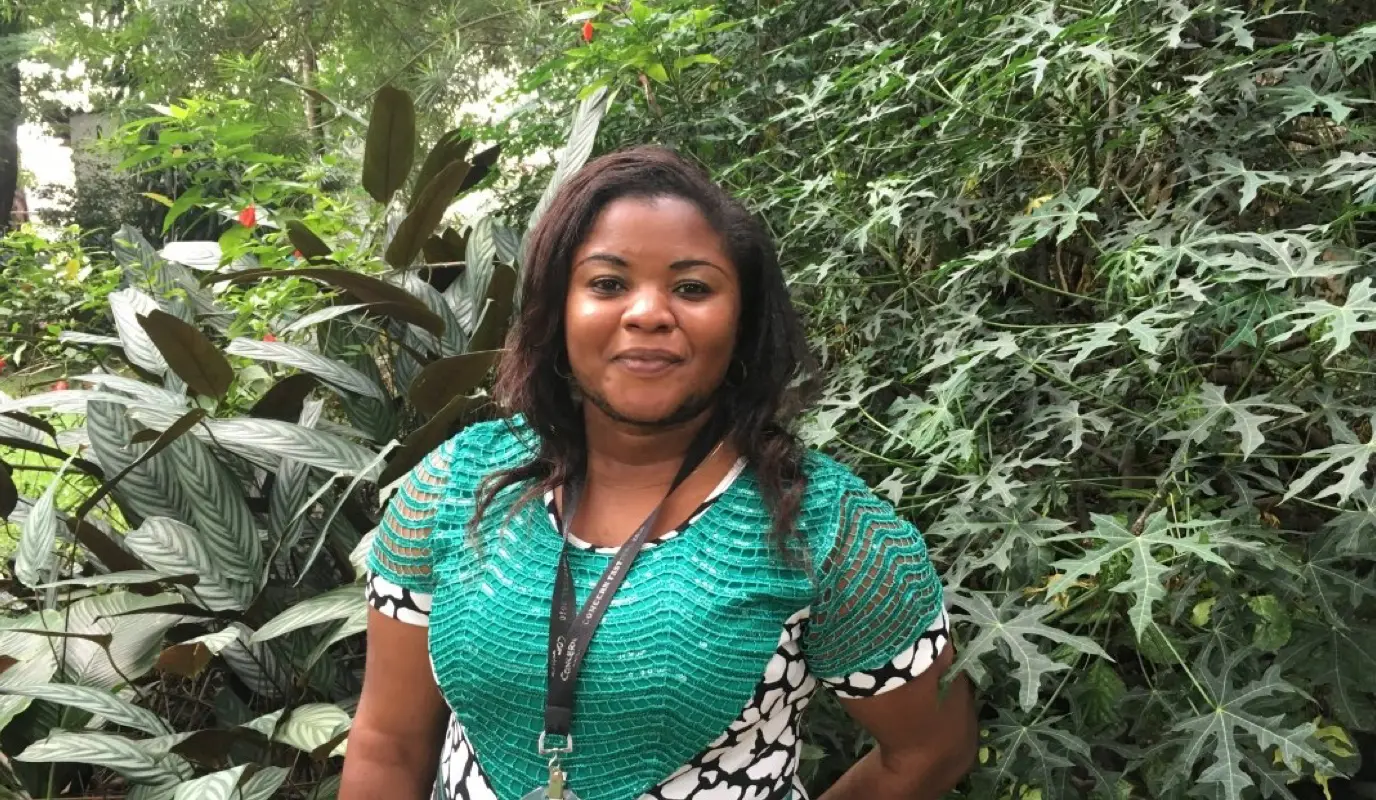
In early 2019, Concern DRC adopted an internal strategy towards gender equality. Two of our objectives were to:
One of our main strategies to accomplish these goals was establishing an internship program exclusively for women, which we’d launched the previous year in 2018. Our coordination team conceived this program as a long-term planning solution to reduce the barriers to recruitment.
Like Germaine, whose first job with Concern was a five-day data entry project, the program is also a great opportunity for women to grow within the organization through skills enhancement, close supervision, and a work environment that promotes confidence and decision-making. The internship is paid, but at rates that are low enough to eliminate the suspicion that women came into their positions through a quid-pro-quo. The lower stakes of an internship mean that women have time to familiarize themselves with Concern and its internal procedures and protocols (including around safeguarding our team members and program participants).
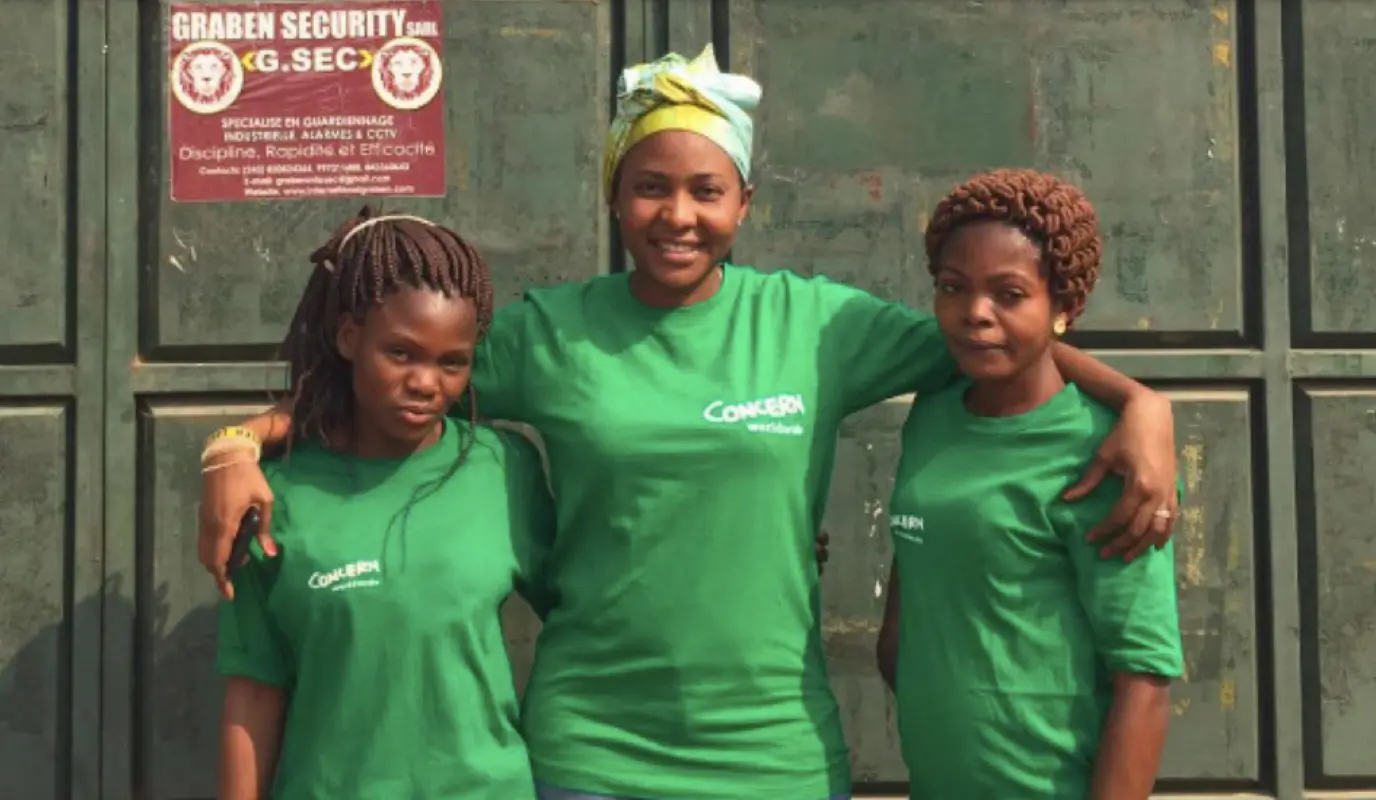
Coupled with the development of gender-friendly recruiting practices and new policies (such as flexible working hours and locations for pregnant and breastfeeding staff members), the internship program has helped Concern DRC’s various offices — including the remote, rural bases — achieve a greater gender parity.
In Tanganyika province, for example, women represented only 8% of Concern staff in December 2017. As of July 2021, they now make up 36% — including seven female interns whose success in those roles led to promotions within Concern.
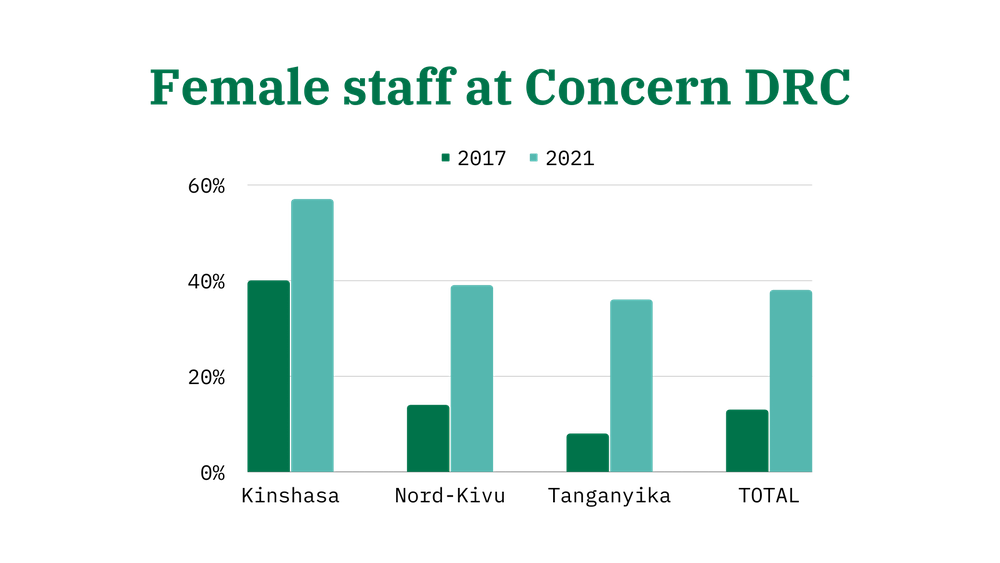
Despite this progress, our efforts must continue to develop female interns within the organization.
In September 2021, Concern DRC implemented new guidelines for the internship program, incorporating lessons learned from the last three years. These include:
We’ve also implemented other measures to promote employment after an internship.
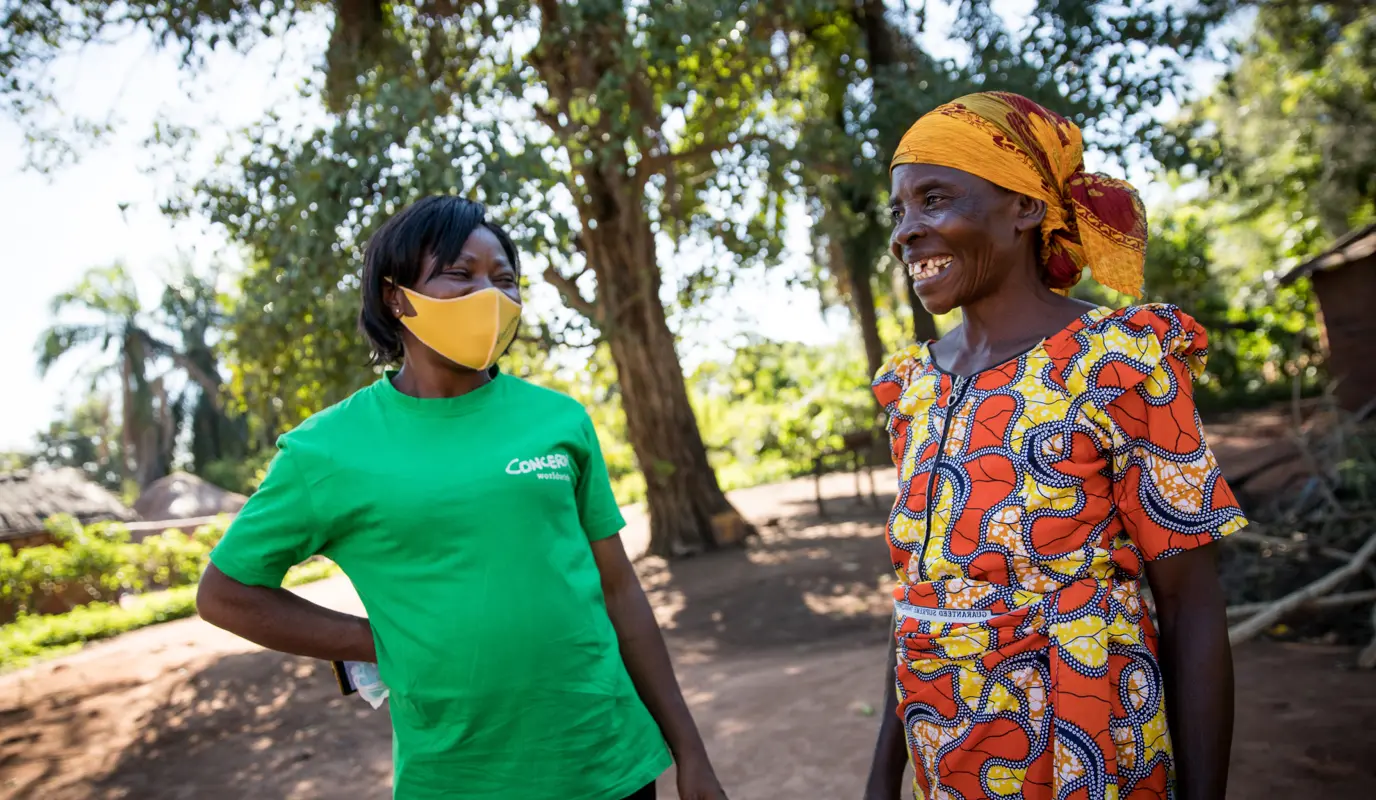
For Concern managers who joined the organization before 2018, the emergence of more mixed teams has had positive impacts. They’ve noticed more friendly competition at work, which translates into improved performance for both men and women.
According to our Graduation project manager, the arrival of women has also helped to undermine some negative prejudices stemming from harmful gender values that persist even among staff staff. For example, the idea that women are inherently not intelligent, or that they are unable to do certain types of work. The positive impacts are also felt at the community level, where again the project managers see a real change as a result of having more females on the team.
Synat, Concern’s USAID Project Manager in Tanganyika, explains that the trainings and sensitizations on gender make more sense for the communities since they are facilitated by mixed teams: “When a Concern team first arrives in an intervention area, they can proudly see the wide-eyed women who see other women being recruited to implement the project. This helps build community confidence in Concern — and encourages parents to send their daughters to school.”
The United Nations identifies gender equality as Goal #5 of its 17 Sustainable Development Goals to hit by 2030. To reach this, our approach at Concern is to address the root causes of gender disparity. Many of these causes are similar to the factors that perpetuate global poverty and hunger.
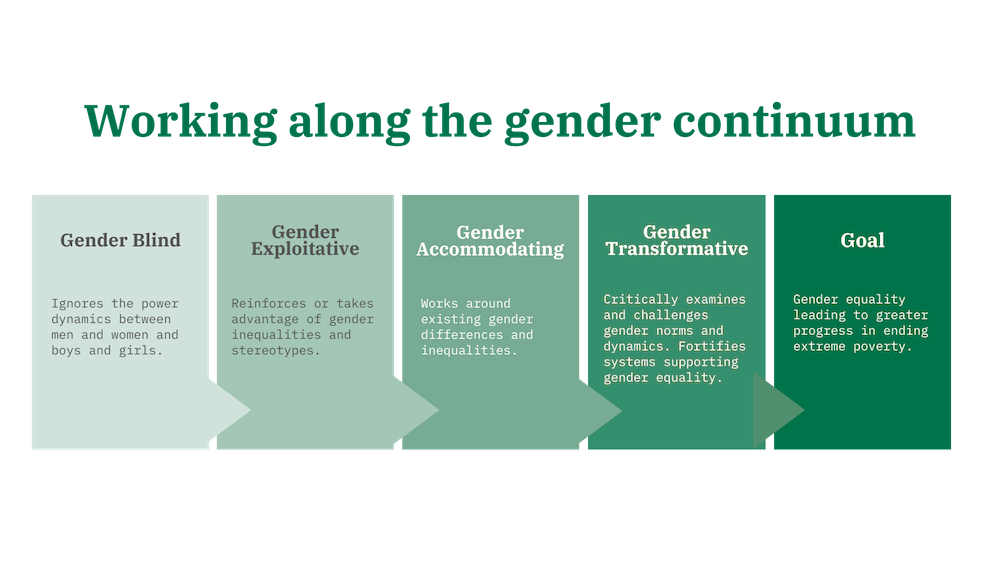
The closer we can get to work that’s transforming gender inequality versus simply being aware of it, the closer we can get to actual gender equality — both in the Concern offices and the communities we serve.
You can support our work by donating below.